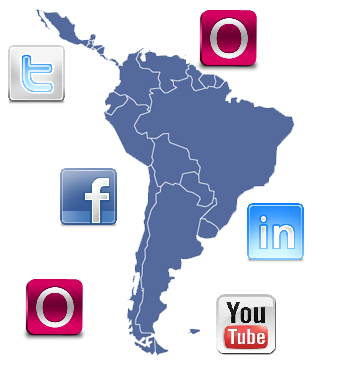Governments Should “Like” Social Media - But Stay Safe
Small Photo
Photo

Last week the Senate Foreign Relations Committee published a report [PDF] on Latin American governments and their need to embrace social media and technology. As a avid follower of news from this region, I inhaled the 15-pager.
The report presents data on broadband, bandwidth, and mobile subscription in the region as well as information on how Latin American countries have used technology to engage with citizens - and what the United States' role should be in this process. While highlighting some examples, it finds that Latin American governments have been slow on the social media uptake.
In our own experience here at NDI, we've found real benefits to social media as a space for two-way communication to occur between citizens and governments in the region. Some of our blog readers might remember an earlier NDI's Mexico office uses Twitter to engage political party leaders engaged with their constituents.
Yet, the most interesting takeaway amid the wealth of data was the need for more digital literacy training to help ensure that citizens can use these social technologies and remain safe while doing so. The Foreign Relations report emphasized the "critical risks that come with connectivity and access to social media resources."
That’s a concern that is, I am sure, at the forefront of many citizens’ minds. After all, it wasn’t too long ago that the world saw images of two Mexicans who were hung from a bridge in Nuevo Laredo after using social media sites to denounce drug cartel activity. The drug gangs responsible for these deaths warned that the same would happen to other citizens who used social media to speak out.
As governments embrace these tools, it’s imperative that they help their citizens learn to use them safely. Allowing for anonymous comments or direct, private responses can help reach out without endangering participants. Civil society groups can also rely on these dialogic tools to launch campaigns to mobilize citizens around a particular issue, serve as a collective voice, or provide citizens with ways they can get involved in their community. This type of engagement can be seen in platforms such as Cuidemos el Voto, which was launched in 2009 to document voting irregularities and issues in Mexico. The platform creates a visual map of the incoming reports, thus allowing citizens to both participate and raise awareness on electoral issues.
So while using social media does bring about fears of violence and safety - an important issue to take into account - these fears should not discourage citizens from using these tools as they can help strengthen democratic institutions and increase citizen participation, while of course keeping societies safe. As citizens receive digital training courses, they can learn ways to anonymize their information, submit citizen reports to website that aggregate it and remove any personal identifying information, and overall safety tips.
